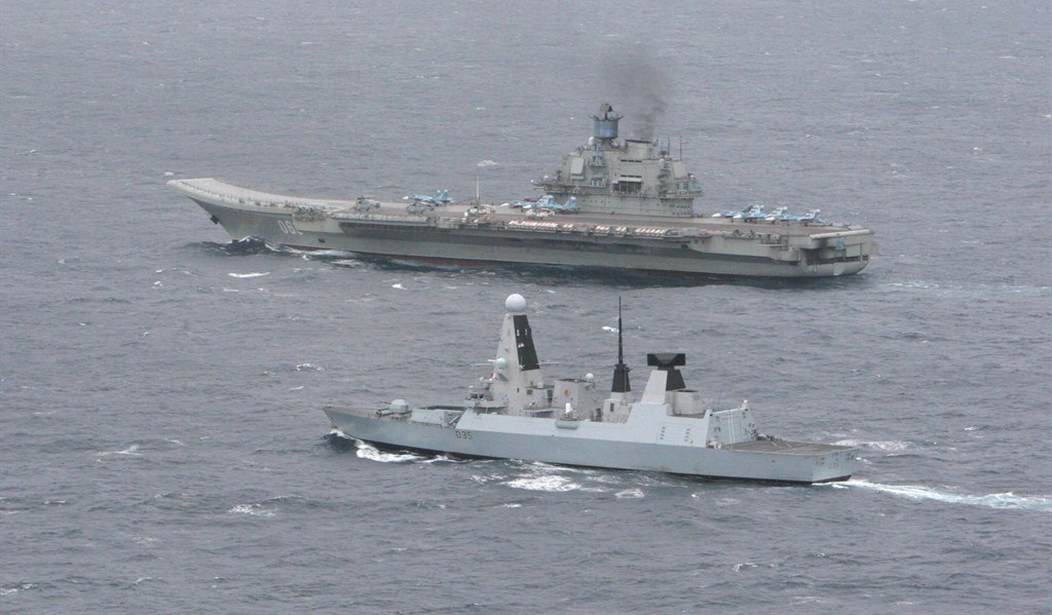Yet another barrage of Houthi missiles attempting to disrupt trade in the Red Sea had UK Defence Secretary Grant Shapps warning today that the Royal Navy has the military force “to do what needs to be done" and that the Yemen-based Islamic terrorists would face "consequences."
The UK's Sun newspaper claimed that Britain is "on the brink" of launching strikes against the Houthis and their missile bases, supplied and funded by the Mullahs Regime in Iran.
"Well," I would like to politely ask Prime Minister Rishi Sunak, "what the hell are you waiting for? Give the order. Like it or not, you're already at war with these people — and have been for a long time."
I would say the same thing to Presidentish Joe Biden, but as I'm filing this report, it's puddin' time in the Executive Residence of the White House.
Before we get to the politics of dancing around war, kudus to the men and women of the HMS Diamond for the "devastating barrage of Sea Viper missiles" that knocked down every Houthi missile targeting her and other ships of the multinational Red Sea flotilla.
As Navy blogger CDR Salamander has noted on more than one occasion, the crews on Royal Navy ships like the Diamond, and America's deployed guided-missile destroyers — Laboon, Gravely, and Mason — are getting irreplaceable real-world training in missile defense. It's one thing to shoot down a swarm of missiles in a simulation and quite another to do it when real missiles are coming right for your ship.
By all accounts, the crews of all the vessels involved — and the aviators of the aircraft carrier USS Eisenhower — have all performed admirably.
If only the same could be said of the politicians who sit like fat, dead hippos atop the chain of command.
A dozen years ago, Somali pirates were operating in the same area, but without all those nifty missiles the Houthis get from Tehran — and, actually, Somali pirates are still a problem. But even longer ago — starting around 1620 — the Royal Navy led a century-long Western effort that nearly eliminated piracy on the high seas.
"Defeating the Corsairs still took a long time and was very expensive," Military History reported during the height of the Somali piracy. "A political will to spend money was essential. England and France were the main combatants. Each of them engaged in several fiercely fought wars against the Corsair states [in Muslim North Africa] from the 1650s onwards."
The Corsairs remained a problem until France subjected Algeria to a colonial regime. Today's colonists are in places like Hamtramck, Mich., Minneapolis, and even London. But we're not supposed to talk about that.
In the Caribbean, pirates were eventually determined to be "enemies of mankind" and treated as such. The Spanish didn't mess around, routinely hanging captured pirates from the yardarm and on the spot. Britain was much more legal-minded and established special tribunals to deal with pirates. But those were mostly just a gloss, as juryless trials condemned hundreds of English pirates to death.
And what was one of the first missions of the U.S. Navy? Fighting and killing pirates. They were good at it, too.
The West knows how to deal with pirates; we've done it before. You don't deal with them through rhetoric or through purely defensive means like shooting down their Iranian missiles. You do it with overwhelming force, applied with maximum violence and a determined disregard for proportionality.
Well, President Biden and PM Sunak, what are you waiting for?
Recommended: California's Next Suicidal Idea Will Shock You — Unless It Doesn't










